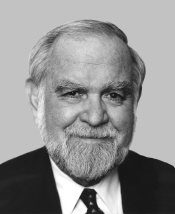Joe Moakley
| Joe Moakley | |
|---|---|
 |
|
| Member of the U.S. House of Representatives from Massachusetts's 9th district |
|
|
In office January 3, 1973 – May 28, 2001 |
|
| Preceded by | Louise Day Hicks |
| Succeeded by | Stephen F. Lynch |
| Member of the Massachusetts Senate for the 4th Suffolk District |
|
|
In office 1965–1971 |
|
| Preceded by | John E. Powers |
| Succeeded by | William M. Bulger |
| Member of the Massachusetts House of Representatives for the 7th Suffolk District | |
|
In office 1953–1961 |
|
| Preceded by | William F. Carr |
| Succeeded by | William M. Bulger |
| Personal details | |
| Born |
John Joseph Moakley April 27, 1927 Boston, Massachusetts |
| Died | May 28, 2001 (aged 74) Bethesda, Maryland |
| Political party | Democratic |
| Spouse(s) | Evelyn Duffy Moakley |
| Religion | Roman Catholic |
John Joseph "Joe" Moakley (April 27, 1927 – May 28, 2001) was an American politician who served as the United States Representative for Massachusetts's 9th congressional district from 1973 until his death in 2001. Moakley won the seat from incumbent Louise Day Hicks in a 1972 rematch; the seat had been held two years earlier by the retiring Speaker of the House John William McCormack. Moakley was the last chairman of the U.S. House Committee on Rules before Republicans took control of the chamber in 1995.
Moakley was born in South Boston, Massachusetts, April 27, 1927 and grew up in that neighborhood's Old Harbor public housing project. Lying about his age, he enlisted in the United States Navy during World War II and was involved in the War in the Pacific from 1943 to 1946. After returning home, Moakley attended the University of Miami in Coral Gables, Florida from 1950 to 1951, and he received his LL.B. at Suffolk University Law School in Boston in 1956.
Moakley was a member of the Massachusetts House of Representatives from 1953 to 1961 and a member of the Massachusetts Senate from 1965 to 1971. He was a delegate to the Democratic National Convention of 1968. After the retirement of longtime Congressman John W. McCormack, Moakley ran for the Democratic nomination in the 9th District, but lost to Boston School Committee chairwoman Louise Day Hicks against the backdrop of Boston's unfolding busing crisis. He was a Boston City Councilman from 1971 to 1973.
...
Wikipedia
